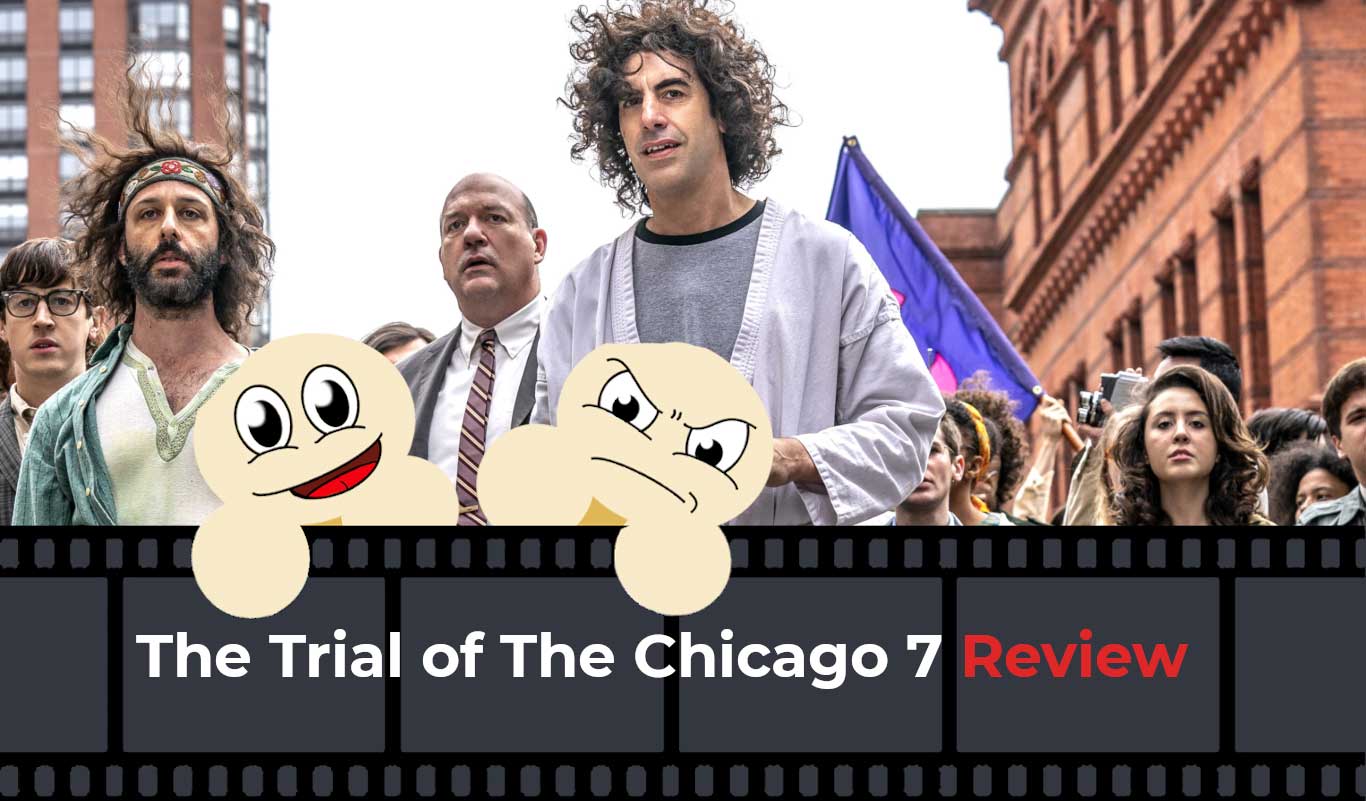The Unforgiving World of American Politics
Introduction
Last year was harsh, producing a slew of mediocre nonsense with the summer blockbuster disappearing entirely from the screen. However, 2020 did manage to present several excellently crafted movies in various other genres. One just needs to know where to look for them.
The Trial of the Chicago 7 is a historical Courtroom-Drama directed and written by Aaron Sorkin, best known for his work on the movie Social Network. Despite flying under the Netflix banner, The Trial of the Chicago 7 feels like a different beast entirely compared to the rest of the library. This film sets up an uncomfortable yet intriguing environment for our protagonists, which mirrors various modern-day dilemmas regarding security ethics in the United States.
Plot and Setting
The Trial of the Chicago 7 is based on a true story that takes place in 1968, a time where American politics was the equivalent of playing a game of international hot potato with nukes and wars. During this period, the Americans had declared an unwanted war recruitment drives where many young Americans would fight and die for their country.
This indifferent outlook towards the war by governmental parties resulted in several protests and riots across America. One of the most famous occurred near a conference in Chicago. The riots resulted in the trial of seven individuals (initially eight) who were the leaders of the anti-war protests. These men became known throughout history as the Chicago Seven. With their fates in the mercy of a crooked (and possibly senile) judge and a broken law system, the seven stand their ground in this David versus Goliath showdown of ideals.
Sorkin does not shy away from the period’s darker themes, such as racism towards minorities and sexual harassment. Observing the mettle of the Black Panther Party’s leader, Bobby Seale (portrayed by Yahya Abdul–Mateen II), as his rights get stripped away by an uncaring geriatric but still managing to stand proud in the face of adversity is a powerful statement.
The film does a fantastic job of cleanly blending the vintage real-life footage of the protests with its cinematography, enhancing the depiction of both the trial and protests. Character clothing and little things like journalists utilising typewriters and notepads in the courtroom give the film’s attention to detail a level of authenticity to the period it was set in.
Characters and Performances
It was difficult to decide who stood out among the crowd of talented actors, as they all performed their roles magnificently. Frank A. Langella Jr’s performance as the egotistical Judge Julius Hoffman and his disrespectful nature to our protagonists, mainly Bobby Seale, was enough to make me want to punch the geezer in the face. There are many scenes where you would think the film could be exaggerating Julius’ insanity, but it turns out Sorkin actually dialled down the crazy to make the character a bit more tolerable for audiences.
Mark Rylance’s portrayal of William Kunstler, the Seven’s increasingly desperate defence lawyer, hits home with every tactical decision he makes being parried by the judge’s revolting behaviour and by his opponents’ underhanded tricks. Like Kunstler, we want to believe that this is just a regular trial, yet the political influence behind it warps any chance of that happening.
As for the Seven themselves, Jeremy Strong is in his element while playing the hilarious anti-war protestor, Jerry Rubin. Strong’s performance adds a bit of levity to some of the heavier moments in the film. Alongside him, there is the more level headed Abbie Hoffman, portrayed by Sacha Baron Cohen, who has no relation to our favourite judge we love to hate.
Hoffman’s witty personality is on full display, with several scenes of him cracking jokes as a stand-up comedian narrating in his own way what is happening to an audience. There were moments where he looked like a celebrity, walking around Chicago in a bathrobe sipping his whisky with a mob of protestors walking behind him. I especially love the growing rivalry between him and Eddie Redmayne’s mild mannered Tom Hayden, who is the complete opposite of Hoffman’s flashy personality.
Speaking of Tom Hayden, the film depicts his character within the courtroom as a sleeping dragon, as it spends its time delicately building him up for a climax. While Abbie acts like a superstar, it is nothing but bark, because he does not have the same bite as Hayden.
Conclusion
The Trial of Chicago Seven is an immersive film that contains many deep political elements surrounding the prevailing injustices of the American judicial system. Those who either enjoy historical narratives based on real-life events or love the mesmerising battle of words between the characters will find this film to be exceptional.
